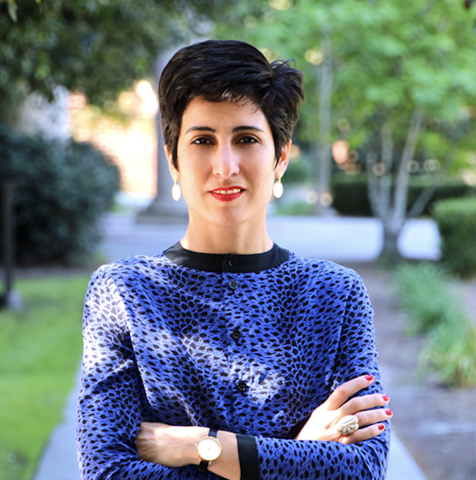Amalia Leguizamón
Associate Professor - Sociology
- South America
- Southern Cone

Biography
I am a sociologist interested in the political economy of the environment in Latin America. I am curious about the power dynamics that fuel development projects in the region and their uneven impact on society and the environment. I thus pay attention to the corporate and state actors who promote these natural resource extraction projects, the technologies they implement, and the socio-environmental movements that have emerged to contest them. My research focuses on Argentina. Some of it has been published in journals like The Journal of Peasant Studies, Latin American Perspectives and Geoforum.
My book, Seeds of Power: Environmental Injustice and Genetically Modified Soybeans in Argentina (Duke University Press, 2020) tells the story of Argentina’s swift agrarian transformation based on the early adoption and intensive implementation of genetically modified soybeans. While soy has brought about modernization and economic growth, it has also created tremendous social and ecological harm: rural displacement, concentration of landownership, food insecurity, deforestation, violence, and the negative health effects of toxic agrochemical exposure. In Seeds of Power I explore why Argentines largely support GM soy despite the widespread damage it creates. I reveal how agribusiness, the state, and their allies in the media and sciences deploy narratives of economic redistribution, scientific expertise, and national identity as a way to elicit compliance among the country’s most vulnerable rural residents. In this way, I demonstrate that GM soy operates as a tool of power to obtain consent, to legitimate injustice, and to quell potential dissent in the face of environmental and social violence.
My teaching is informed by my research interests. My goal as a teacher is to help students develop and apply their sociological imagination to environmental problems. At Tulane University, I teach courses such as Environmental Sociology, Sociology of Food and Agriculture, Sustainable Development in Latin America and Latin America and the Environment.
Additional Info
Latin American-Related Courses Taught in Last 2 years:
- SOCI 6650 Sustainable Development in Latin America
- SOCI 6112 Sociology of Food and Agriculture
Research
Environmental Sociology, Sociology of Development, Political Economy, Social movements and Collective Action, Food and Agrarian Studies, Latin American Studies
Degrees
- Ph.D., The Graduate Center, CUNY, Sociology, 2014
Academic Experience
- Associate Professor, Tulane University, 2020-
- Assistant Professor, Tulane University, 2014-2020
Distinctions
- Course Development Grant. Foodways Program, New Orleans Center for the Gulf South, Tulane University, 2019
- Robert Boguslaw Award for Technology and Humanism, Section on Environmental Sociology, American Sociological Association, 2017
- Faculty Fellows Research Grant, Newcomb College Institute, Tulane University, 2017
- Course Development Grant, Environmental Studies Program, Tulane University, 2016
- Lurcy Grant. School of Liberal Arts, Tulane University, 2015-2016
- Graduate Center Dissertation Fellowship, CUNY, 2012-2013
- P.E.O. International Peace Scholarship, 2006-2008
Languages
- Spanish
- French
Selected Publications
- Leguizamón, Amalia. 2020. Seeds of Power: Environmental Injustice and Genetically Modified Soybeans in Argentina. Durham, NC: Duke University Press.
- Leguizamón, Amalia. 2019. “The Gendered Dimensions of Resource Extractivism in Argentina‘s Soy Boom.” Latin American Perspectives 46 (2): 199-216.
- Leguizamón, Amalia. 2016. “Disappearing Nature? Agribusiness, Biotechnology, and Distance in Argentine Soybean Production.” Journal of Peasant Studies 43 (2): 313-330.
- Leguizamón, Amalia. 2016. “Environmental Injustice in Argentina: Struggles Against Genetically Modified Soy.” Journal of Agrarian Change 16 (4): 684-692.
- Leguizamón, Amalia. 2014. “Modifying Argentina: GM Soy and Socio-Environmental Change.” Geoforum 53: 149-160.
